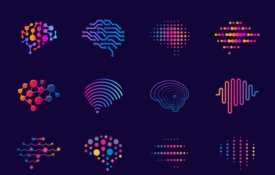-
A Smile at a Wedding and a Cheer at a Soccer Game Are Alike the World Over
In the 19th century, French clinician Guillaume-Benjamin-Amand Duchenne posited that humans universally use their facial muscles to make at least 60 discrete expressions, each reflecting one of 60 specific emotions. Charles Darwin, who greeted that number with some skepticism, was invested in exploring the universality of facial expressions as evidence of humanity’s common evolutionary history. He ended up writing a book about human expressions, leaning heavily toward the idea that at least some were common across all cultures. ...
-

New Research in Psychological Science
A sample of research on children’s susceptibility to trust strangers, prosocial behaviors in adolescents, temporal structure in memory, memory accuracy for real-world events, effort and pupillometric investigation, personality changes and career, and a neurobiological examination of delayed judgments of learning.
-

Breakthroughs and Discoveries in Psychological Science: 2020 Year in Review
A selection of some of APS’s most newsworthy research and highly cited publications from 2020.
-

New Content From Perspectives on Psychological Science
A sample of articles on contact tracing as a memory task, challenges of military veterans in their transition to the workplace, the dehumanization hypothesis, and statistical learning and language impairments.
-
How Do Children Make Sense of the Differences They See Among Students at School?
Today, during circle time in preschool, the teacher is reading a new book called The Three Robbers. The teacher begins reading the book: "Once upon a time there were three robbers, with big black coats and high black hats.” When the teacher shows the picture to the children, Jeanne says to the classroom: "They are scary! But actually, they are nice!" The other children wonder how Jeanne knows this! This example illustrates the fact that classroom settings bring to light many differences among children. These differences might pertain to academic achievement, to the speed and ease with which children perform various tasks, to how they speak, or to other behaviors and characteristics.
-
Why Asking People To Change Their Behavior During The Pandemic Is So Hard
To control the virus, some officials are forgoing rules or mandates and instead are relying on individuals to do the right thing. So what motivates behavior change, and what falls short? ...

